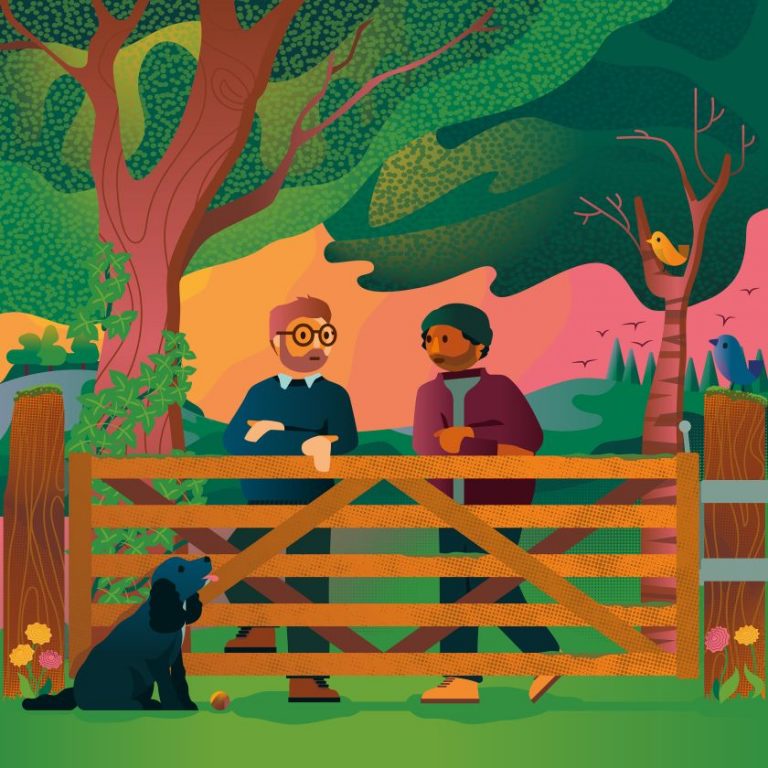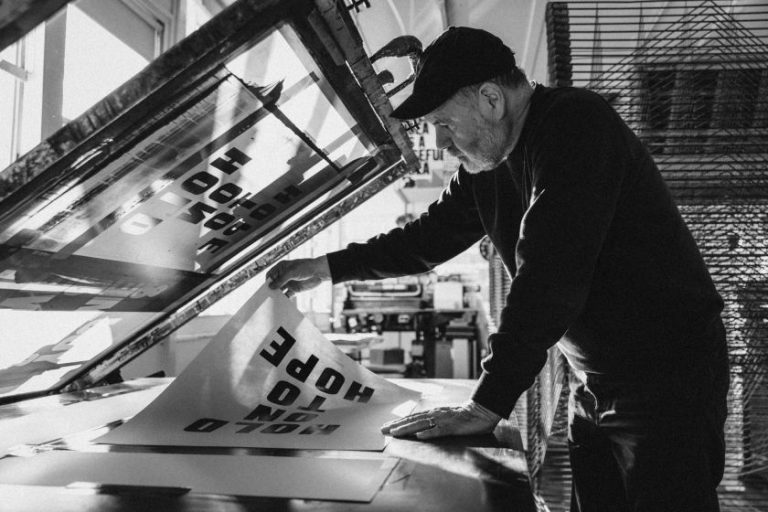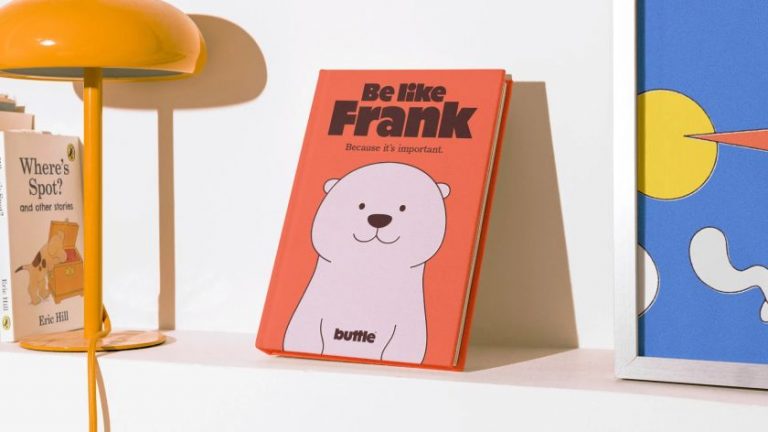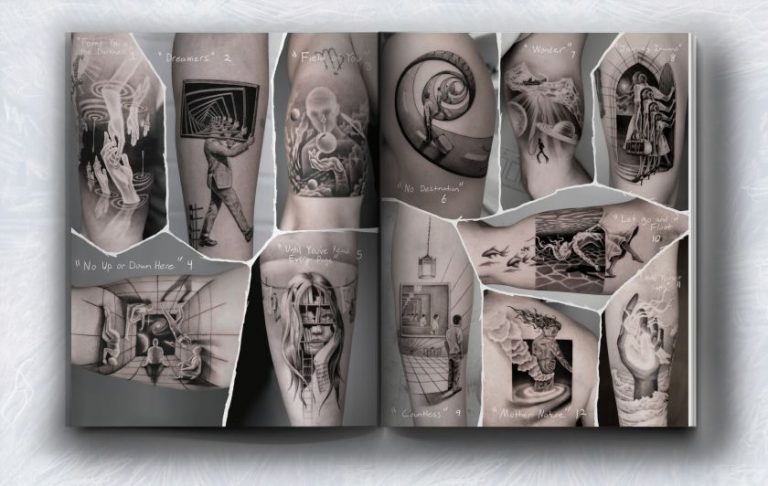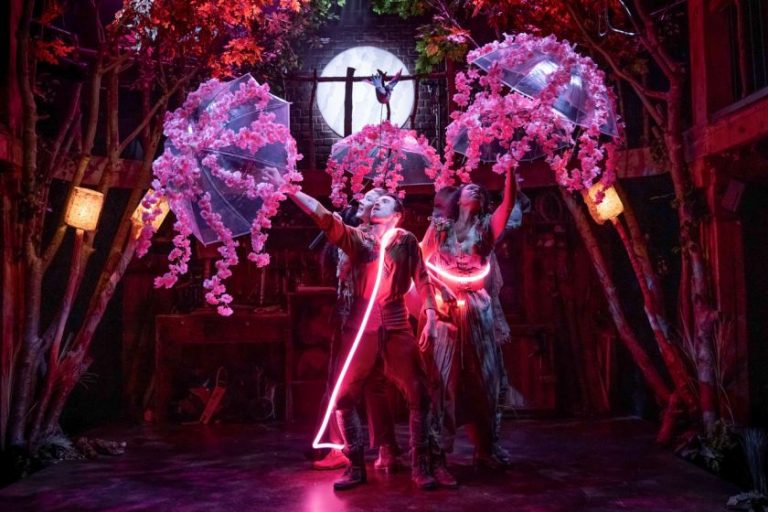Brighton-based illustrator Ulrike Marais tackles themes of grief and memory via insects and meals in her latest project, Omi’s Dinner Party. Informed by her own experiences of loss, this cookbook cum picture book uses recipes as a way to remember those who are no longer with us.
Completed as part of her MA in illustration at Falmouth University, Omi’s Dinner Party sees a family of ladybirds work together to make a series of recipes. There’s more to this bunch of cooking critters than meets the eye, though, as their story is universal and taps into difficult topics of grief, death and memory that nonetheless need to be talked about.
Beautifully realised with a combination of traditional and digital mediums, Omi’s Dinner Party is a feast for the eyes as well as the soul. While the combination of insects and recipes might seem an odd way to discuss such weighty topics, Ulrike makes clear how different factors of her life have come together in this beautiful story.
“Our family life has always been centred in our kitchen, in my childhood home,” she tells Creative Boom. “My childhood memories are of days spent cooking jam with my mum, baking Christmas biscuits with my sister or spending time with family at the kitchen table.”
After the loss of her mother, Ulrike started to cook her recipes as a way to hang on to her memory. The taste of these meals transported her right back to childhood, so she combined her love of these recipes with her love for ladybugs and her mum to create a heart-warming tribute.
As Ulrike says, food is an incredibly potent symbol in her life. As well as being there to create happy memories, it is also intrinsically linked to sad ones. “The day my mother passed away, she had made a sandwich for my father,” she reveals. “I recall it so well, how he ate it slowly, mourning but savouring the last meal my mother had prepared for him.”
Memories like these are so tethered to grief and imagination that Ulrike thought they fitted perfectly into the medium of a picture book. “Reflecting on one’s memory when crafting a picture book is so valuable as it is utterly unique to you,” she says. “It enables you to journey back into the past, to relive moments and emotions.”
Taste can be a powerful trigger when it comes to these nostalgic feelings. According to Ulrike, recipes associated with special occasions or events can help create a better understanding of “selfhood”. They do this by taking you back to an idealised past, one where the people you prepared meals with were still there to enjoy them with you.
This realisation leads to Ulrike leafing through the recipe books of her mother and grandmother. After reading through the pages of these meticulously handwritten books, she decided to recreate their contents to celebrate her. “It was a way to relive a moment, a memory in the kitchen with my mother.”
Every recipe in the book relates to these cookbooks and the memories of Ulrike’s childhood. “Take, for example, the goulash recipe, traditionally a Hungarian beef stew recipe,” says Ulrike. “My mother used to cook it for us as children; it’s a very hearty, spicy stew. It was also the first recipe and meal my dad could cook and prepare for himself after my mother died.
“She was his everything. She cared for him, and I’ve had to watch him re-learn and learn many new ways of living, which is why I also included it in the cookbook. A small win for us as a family.”
Every story needs characters, though, and in Omi’s Dinner Party, they just happen to be ladybugs. Having grown up with an Afrikaans father and German mother in South Africa, Ulrike used to love hearing German folktales and looking at the illustrations of Fritz Baumgarten. Her love of insects and ladybugs emerged from these stories and has stayed ever since.
“Using ladybugs also helped with the subject matter,” she adds. “It was rewarding but incredibly difficult to constantly face your grief, so I created this imaginative world and characters. While they might seem a bit fantastical, they provided a comfortable barrier which I needed to finish the book.”
The inclusion of ladybugs certainly helps to make the themes and story more accessible. Ulrike adds that the sense of honesty which underlines the book also makes grief more palatable and encourages a process whereby readers can relive their own memories. It’s one of the many unique perks of the picture book format.
“As a children’s illustrator and being an adult, I love picture books,” says Ulrike. “I’ve learnt so much from them, so I approached my project with the same appreciation. But if I were to get down to the nitty-gritty, I would say that the recipes in the book are geared towards adults as they will be preparing and reading through them, but the characters are more geared towards children and their imaginations.”
And, of course, Ulrike’s exquisite illustrations further help to tell the story of Omi’s Dinner Party, which is the result of a lengthy process of experimentation. “I was messing around with printmaking, Lino and a form of printing using old oat milk cartons,” she says.
“It was a lovely process that I thought would be really fun to use, but it didn’t suit the subject matter, so I combined collage and drawing using my 104-year-old grandmother’s recipe books. I made copies, of course, and used them to make a collage.
“Her handwritten words come through the shades of pastel and pencil, giving the illustrations a lovely texture. However, I had to work hard to balance all the elements, techniques and materials.”

